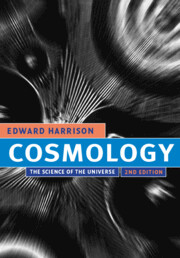26 - Life in the universe
from PART III
Published online by Cambridge University Press: 05 June 2012
Summary
Life, like a dome of many-coloured glass,
Stains the white radiance of eternity.
Percy Bysshe Shelley (1792–1822), AdonaisORIGIN OF LIFE ON EARTH
How did life originate on Earth? There are various theories, most of which fall into the four classes: special creation theories, spontaneous creation theories, panspermia theories, and biochemical theories.
Special creation theories
The belief that life originated as a supernatural event is the metaphysical theory of special creation. It has numerous mythic variations. Most recorded myths distinguish between nonliving and living things. Often the nonliving world comes first, the living world follows, and creation is thus a twofold act. Catastrophe theories of the eighteenth and nineteenth centuries elaborated on such beliefs and proposed that many acts of creation had occurred in the past. After a catastrophe had destroyed the terrestrial environment, newly created life arose in more evolved forms, and evolution occurred supernaturally, not naturally. Organic life even in its rudest forms was thought to be composed of substances fundamentally different from those of nonliving things. To this day we speak of organic and inorganic chemistry, although this distinction is now a matter of convenience only, and organic chemistry deals mostly with the numerous compounds containing carbon atoms. It came as a shock when the chemist Friedrich Wöhler in 1828 first made urea (a simple organic substance) from inorganic chemicals. Subsequent developments showed that chemicals are interchangeable between inorganic and organic things, thereby unifying the living and nonliving worlds at the atomic and molecular levels.
- Type
- Chapter
- Information
- CosmologyThe Science of the Universe, pp. 535 - 554Publisher: Cambridge University PressPrint publication year: 2000



